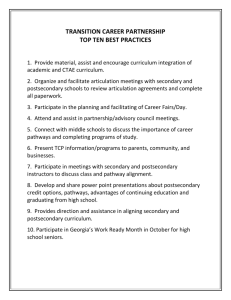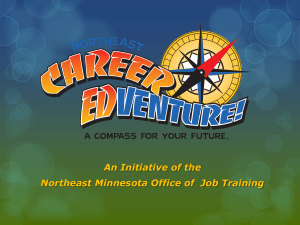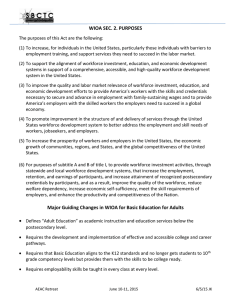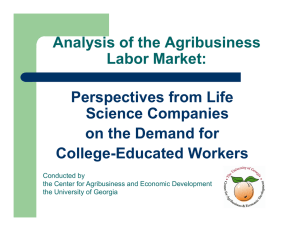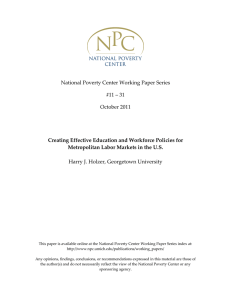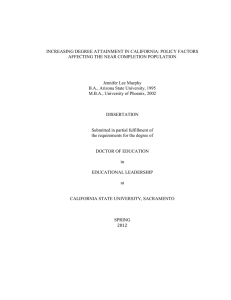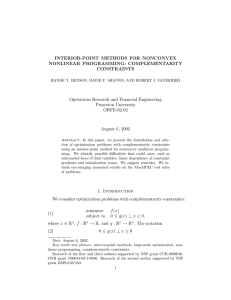ppt. - SHEEO
advertisement
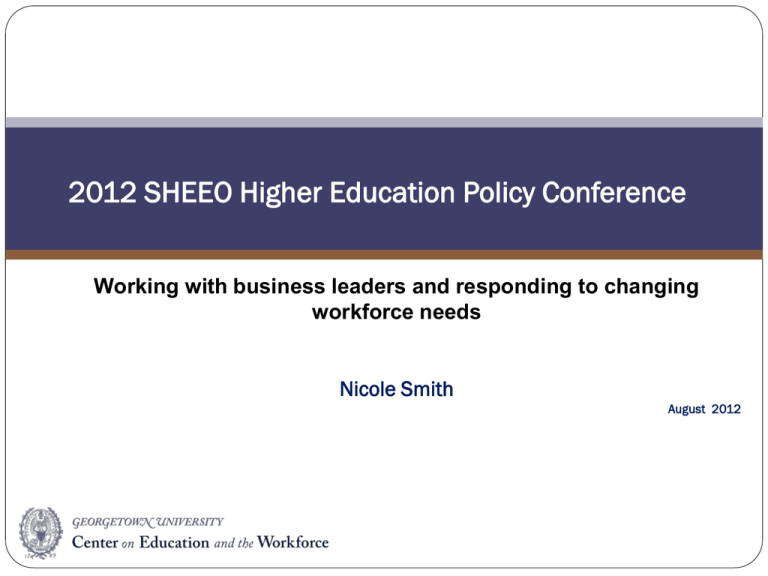
2012 SHEEO Higher Education Policy Conference Working with business leaders and responding to changing workforce needs Nicole Smith August 2012 Universal Challenges • Recessions accelerate process of skills-biased technological change. • Jobs that remain, require more and more postsecondary education and training. • Fastest growing industries are the ones that use postsecondary education most intensely • The United States has been underproducing college-educated workers for decades (Goldin/Katz). • The undersupply of postsecondary-educated workers has contributed to inefficiency, inequity and mismatch • If we continue to underproduce college-educated workers, the large and growing gap between the earnings of Americans of different educational attainment will grow even wider. Skills biased technical change is the engine that favors services SOURCE: The Georgetown University Center on Education and the Workforce analysis of Census and O*NET data The Economic Value of College Education has increased over the past 40 years. Wage growth by education level for men Source: Center on Education and the Workforce Analysis Wage growth by education level for women We know that employment is related to education Post recession 2007: The growth has been in college level jobs The man-cession has an education dimension About 65 percent $772 billion on education and training is spent outside of the formal postsecondary education system. (in billions of dollars) Characteristic of Mismatch Knowledge, skills, abilities that for all intents should have been learned in the education system remain wanting. Even soft skills such as communication skills, networking, general people skills have grown in importance but remain insufficient. 5.6 million people in the US have been unemployed for six months or more. 43% of all unemployed and just over 4 percent of the entire labor force. Disproportionately minority More likely to be male, Significantly more likely to have high school as the highest level of education attained. Skills matching depends upon both on non-cognitive and cognitive competencies Physical and mechanical skills are on the decline Cognitive skills are on the rise Taxonomy of Tasks Task Type Task Description Example Occupations Potential Impact of Computerization Routine ‘Middle Skill’ • ‘Rules-based’ • Repetitive • Procedural • Bookkeepers • Assembly line workers • Direct Substitution Non-Routine Cognitive (‘Abstract’) ‘High Skill’ • Abstract problem-solving • Mental flexibility • Scientists • Attorneys • Managers • Doctors • Strong Complementarity • Truck drivers • Security guards • Waiters • Maids/Janitors • Limited Complementarity or Substitution Non-Routine • Environmental Manual Tasks Adaptability • Interpersonal (‘Manual’) Adaptability ‘Low Skill’ Our Responsibility Impact Those “At Risk”: First generation college attendees Strengthen high school to college pipeline Improve graduation rates Reduce need for remediation Improve workforce preparedness Leverage resources between public and private sectors to support educational excellence


